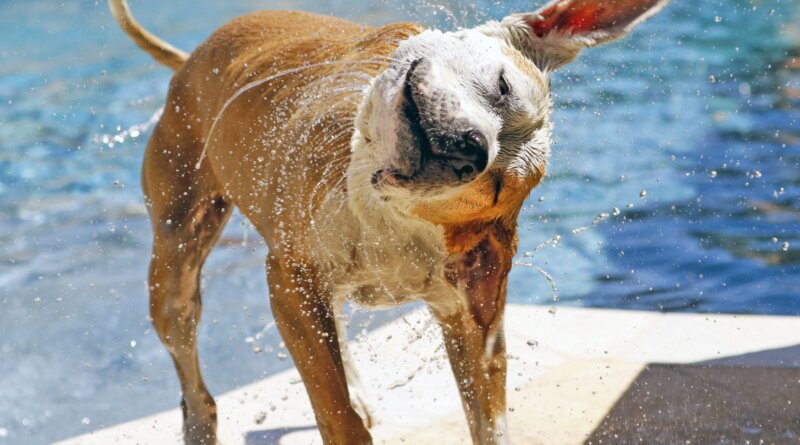Water in Dog’s Ear? No Problem
Just like us, dogs can get water in their ears during swimming or bathing. While this isn’t a big deal, it can be uncomfortable and can increase the risk of ear infections. But you can easily dry your dog’s ears out at home.
How to Get Water Out of a Dog’s Ear
If you notice your dog shaking her head or tilting it to the side after swimming or a bath, she may have water in her ear(s). Start by drying her head and the outer part of her ears with a towel so that more water doesn’t drip in.
Next, place a cotton ball inside the ear and squish the ear gently. The cotton ball will absorb the water. Repeat with several cotton balls to ensure the ear is dry. If you don’t have cotton balls handy, gauze or a clean towel can do the job in a pinch.
Extra Steps for Dogs Prone to Ear Infections
For most dogs, this will be the end of it. Your dog will shake her head and go on with her day. But if your dog is prone to ear infections, you should take some extra steps. Purchase a dog ear cleanser from your veterinarian or a pet-supply store and use that to flush and rinse the ear, following with dry cotton balls.
The ear cleanser is a worthwhile step because these products contain a drying agent that helps to reduce moisture inside the ear. Regular ear cleaning is a great way to prevent ear infections in dogs who are prone to them, especially if they enjoy swimming.
Never place anything else in your dog’s ear unless your dog has been seen by a veterinarian. While your dog’s head tilt or ear shaking may indeed be caused by water in the ears, these behaviors can also be a sign of infection. If the infection has perforated your dog’s ear drum, any product that you put in the ear can get through. Some ear medications and home remedies can be harmful if they get through the ear drum, even causing deafness.
Preventing Water in Dog Ear
You can prevent your dog from getting water in her ears during a bath by placing a cotton ball in each ear before you turn on the water. This method doesn’t usually work well for swimmers because the cotton balls can easily get dislodged during play, and then you will need to retrieve and dispose of them properly.





